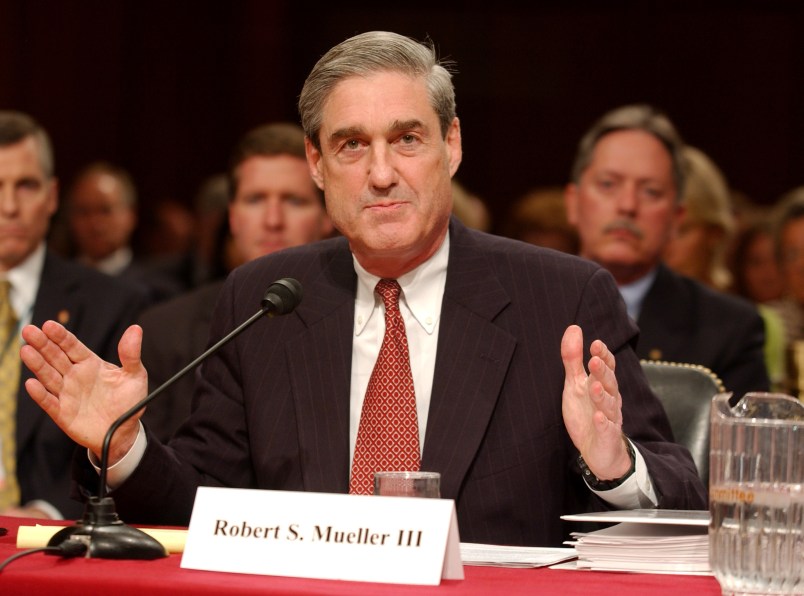There are a number of different developments in the Russia story that I wanted to flag and discuss as we begin this Thanksgiving-shortened week.
First, according to ABC, Robert Mueller’s team recently made a wide-ranging request for documents to the Justice Department, including Justice Department communications with the White House. This is both unsurprising and likely inevitable on the one hand and yet still a dramatic escalation of the probe on the other.
We’ve long known that potential obstruction of justice by the President and his top aides is a central part of Mueller’s investigation. The focal point is his firing of James Comey. But the firing isn’t the only action under scrutiny. Paradoxically it may not be the most legally significant. There was also Trump’s alleged request for Comey to drop the government’s investigation into Mike Flynn. In both cases, but particularly with regard to firing Comey, the chain of actions and evidence goes directly through the top leadership of the Justice Department – specifically Jeff Sessions and Rod Rosenstein. Thus document requests and perhaps eventual subpoenas seem almost inevitable.
And yet, the Justice Department is directly overseeing Mueller’s probe. So he is now investigating his overseers. Attorney General Sessions recused himself. But that’s just him personally. The Department maintains all its power over the probe. Rosenstein is simply acting Attorney General for the purposes of this investigation. It’s at best a highly strained, challenging set of circumstances for everyone involved.
Will Trump try to fire Mueller or end his probe?
There’s another article that may help us understand that question. The Post last night published an article about how the White House is grappling with the probe. There are two broad camps in the White House with different reads on where the investigation is going. One sees a long unfolding probe with no end in sight. Another – seemingly including the President – has accepted the assurances of presidential lawyer Ty Cobb that Mueller is close to wrapping up his probe and will likely bring it to a conclusion by the end of the year or soon after. So in January or earlier this group – let’s call them the optimists – expect Mueller to wrap up and issue a clear exoneration of Trump and all or most of his top aides.
This is a very curious assurance since very few outside observers, especially experienced federal prosecutors, share this interpretation of where the investigation is going. An important caveat: those who are invested in the probe, either for political reasons or simply because they’ve spent a lot of time reporting on it, may themselves not be unbiased in their reads. Still, what Cobb seems to be saying is to be belied by lots of evidence from the progress of this probe and the history of other comparable ones. Cobb is not a top tier DC defense lawyer. But he’s not new to this stuff either. It is hard not to consider the possibility that this is not only wishful thinking on Cobb’s part but an effort to keep his client from doing something rash – i.e., trying to fire Bob Mueller.
The last piece I want to flag is one that appeared this weekend in Politico. Significantly, it is actually an excerpt from a new book by Luke Harding called Collusion. Going on the background of the author and reading this excerpt, the book seems like a must-read. The gist of the article is that it seems quite clear that the then-Soviet Union began trying to either coopt, compromise or recruit Donald Trump as far back as the late 1980s.
We’ve seen this claimed before. And it’s public knowledge that Trump visited Moscow on a state sponsored visit in the Gorbachev era. But Harding makes a much more detailed, reported and persuasive case than I’ve seen anywhere else. Of course, just because a foreign spy agency was interested in you doesn’t mean you were interested in them. It doesn’t mean you did anything wrong. But it’s a key part of the story. And I don’t think we can fully understand what has happened in the last two-plus years without knowing this backstory from three decades ago or indeed that of the twenty-eight intervening years.






